|
Welcome to Secrets of Organ Playing Podcast 527!
Today's guest is a young and talented American organist Tyler Boehmer. With international acclaim for his keyboard abilities, Tyler carries much promise as a future organ virtuoso. After completing undergraduate studies at Brigham Young University with Dr. Don Cook, Tyler moved to the University of Kansas to study with Dr. James Higdon. He has also been active in many national and international competitions. Recent accolades include first prize in the Miami International Organ Competition (2019), second prize in the Sydney International Organ Competition (2018), and the diploma prize in the Mikael Tariverdiev International Organ Competition (2017). Besides attending school, T. Boehmer also works for the church where he plays for services and works with the children’s handbell ensemble. In the future, he plans to become a university professor. I met Tyler at my church and we talked about his experiences in preparing and participating in the 8th International M.K. Ciurlionis Piano and Organ Competition. By the way, just before coming to Vilnius he won the 3rd prize in Shanghai International Organ Competition. Listen to the conversation Relevant link: www.tylerboehmer.com
Comments
The official website of the competition has announced the finalists:
http://ciurlionis.link/en/b/organ/rezultatai I'm going to post them here for you to see. Here are 6 organists who are OFFICIALLY admitted to the FINAL Round of the 8th International Piano and Organ Competition (in ALPHABETICAL order): No. 2 Tyler Jason Boehmer, United States No. 4 Somang Lee, South Korea No. 11 Josef Kratochvíl, Czech Republic No. 16 Filip Šmerda, Czech Republic No. 20 Jan Šprta, Czech Republic No. 22 Hyun Sun Park, South Korea Congratulations! I'm looking forward to listening to your performances on Friday. If you read my reviews of the 2nd Round, you would have noticed I have given each contestant a score from 1 to 10 in 3 categories - technique, registration and artistry. I have added up the points for each category and came up with my own list of the results. Are you curious? Here they are in DESCENDING order: No. 2 Tyler Jason Boehmer, United States - 81 points No. 7 Sunghyun Park, South Korea - 79 points No. 11 Josef Kratochvíl, Czech Republic - 76 points No. 4 Somang Lee, South Korea - 74 points No. 22 Hyun Sun Park, South Korea - 70 points No. 3 Ilaria Centorrino, Italy - 68 points So the above 6 people ACCORDING TO MY OWN SCORES would have advanced to the Final Round. And here are the remaining scores in descending order: No. 1 Yohan Chung, South Korea - 67 points No. 16 Filip Šmerda, Czech Republic - 67 points No. 20 Jan Šprta, Czech Republic - 66 points No. 14 Ae Shell Nam, South Korea - 62 points No. 13 Anastasiia Igoshina, Russian Federation - 61 points No. 17 Alexander Little, United Kingdom - 60 points [Disclaimer: This is my personal opinion which may or may not coincide with the reader's opinion. If you don't like it, write your own.] I just had a lunch with Tyler Boehmer, an American organist who played at the competition yesterday. Before that we had a very insightful conversation for our Secrets of Organ Playing Podcast which will go live on Sunday, so stay tuned!
And now I'm sitting at the church of St Casimir's waiting for today's audition to being. There is some 20 minute delay because of the technical issues of the organ needed to be taken care of. Some mechanics of the manuals and tuning of the Trompete stop. But now it's all ready to go. The live stream should be available from competition's website: http://ciurlionis.link/en/b/organ The first contestant today is No. 14 Ae Shell Nam from South Korea. He starts his program with Fantasia and Fugue in G minor, BWV 542 by Johann Sebastian Bach. The registration of the Fantasia's loud episodes includes manual Trompete which sounds out of place here to me. The soft episodes are played only with principals 8' and 4'. Could have been a separate principal chorus on a positive instead. The tempo started to fluctuate too much in the middle. The fugue starts without 16' in the manual. Tempo is too fast to be able to hear fugal entries and counterpoint. The first pedal entrance of the fugue is with a mistake. Did organist use pedal preparation? Not sure if the hands and feet sound together in one phrase where they move in parallel 6th chords. The ending sounds rushed. My score based on the scale of 10: Technique: 6 Registration: 7 Artistry: 6 Next on the program is Fugue in C# minor, VL 86 by Mikalojus Konstantinas Ciurlionis which is required piece for Round 2. Good registration in the middle section where E major comes in. The stop changes towards the culmination sound a little too late. Not much attention to harmonic changes. Needs more articulation to let it breath between the phrases. My score: Technique: 8 Registration: 7 Artistry: 7 The final composition is "Transports de joie" by Olivier Messiaen from "L'Ascension". The organist doesn't seem to use the trick of playing a piece one octave down at least some episodes where the manual range allows it. This would make it sound more French when playing on the Neo-Baroque organ. Some chords feel rushed. Especially in culmination. My score: Technique: 7 Registration: 7 Artistry: 7 Now is the turn for No. 16 Filip Šmerda from Czech Republic. He starts with Prelude and Fugue in E minor, BWV 548 by J.S. Bach. I need more articulation in the hand part in many places. The manual part is too weak to balance the Posaune in the pedals in the prelude. Is there 16' in the hand parts? The fugue is also played on the same registration. A small slip in the hand part doesn't prevent the flow of music. I don't hear articulation in the 16th note runs. Sometimes there is no sense of pulse and strong and weak beats. My score: Technique: 6 Registration: 7 Artistry: 7 The next piece is the fugue by Ciurlionis. I miss more attention to harmonic changes and subject entries at the beginning. The breathing between phrases could be more prominent in these acoustics. Conservative climax in terms of registration. Works well. My score: Technique: 8 Registration: 10 Artistry: 8 We now again hear "Transports de joie" by Olivier Messiaen from "L'Ascension". I again see the dilemma of making this organ sound more French. Some chordal passages could be played with more attention. The same could be said about the final long run. Great sounding final cadence. My score: Technique: 7 Registration: 7 Artistry: 7 The next contestant is No. 17 Alexander Little from United Kingdom. He plays BWV 548 which we heard before. I have my own doubts about the registration here. The manual part sounds too harsh because of Trompete. More than a few small mistakes don't disturb musical flow. Need much more attention to articulation. The final trill in the prelude could be performed with more stylistic awareness. The same registration in the fugue. Here the organist doesn't control the 16th note runs with articulation. Can't emphasize this enough. Not a complete final trill. My score: Technique: 5 Registration: 7 Artistry: 6 Next sounds the fugue by Ciurlionis. Good registration at the beginning. The musical flow seems a little rushed, producing a mistake in one place at the beginning where the pedals come in. Pedals are too weak in E major episode. Wrong note before B minor. Needs more attention to harmonic changes. The ending is rushed too. My score: Technique: 8 Registration: 8 Artistry: 6 The final piece is "Transports de joie" by O. Messiaen. At times chordal passages sounds chaotic. Good enthusiastic spirit though. The organ lacks French colors. Better articulation is perhaps needed for scalar passages to be heard properly. The final pedal two-note motive is too slow for my taste. My score: Technique: 6 Registration: 7 Artistry: 7 After a short break the next contestant arrives. This is No. 20 Jan Šprta from Czech Republic. His program starts with Prelude and Fugue in Eb major, BWV 552. The organist seems to wield the acoustics well at the beginning. Good principal chorus with mixtures and 1 3/5'. I want more attention to the key changes. A couple note slips don't disturb the flow of music. The fugato episode needs more articulation and attention to details. The final cadence seems rushed. The 1st fugue starts with reduced registration but a bit faster tempo. The 3rd fugue sounds too fast in relationship with the previous fugue. Better articulation is needed. The final trill needs more stylistic awareness. My score: Technique: 7 Registration: 10 Artistry: 7 Next sounds the fugue by Ciurlionis. Rushed tempo and no attention to melodic and harmonic changes at the beginning. More rush in the middle. Good balance between hands and pedals. Before B minor episode two noticeable mistakes. The chaos in culmination. Registration doesn't work here because of the reed. My score: Technique: 7 Registration: 6 Artistry: 5 The final piece is "Transports de joie" by Olivier Messiaen which we heard before. Exciting spirit in performance. Registration changes toward culmination come too late because of the assistant. Needs more French flavor in registration. The final cadence could have been listened with more attention. My score: Technique: 8 Registration: 8 Artistry: 8 And the final contestant in the 2nd Round is No. 22 Hyun Sun Park from South Korea. The organist starts her program with the fugue by Ciurlionis. Calm tempo and no rush provide a feeling of contemplation. A little bit better phrasing is needed. I want more pedals in E major episode. In culmination a little mistake is heard and I think more forward movement could have been better. Also need to listen to harmonic changes more. My score: Technique: 7 Registration: 8 Artistry: 7 Now sounds "Eaux natales" from Poèmes pour orgue: "Eaux natales" by Thierry Escaich. We've heard this piece yesterday played by Tyler Broehmer. I like his opening registration more. But later the performance gets in the mood pretty well. Nice registration colors at the end. My score: Technique: 10 Registration: 8 Artistry: 10 The final piece for today is Toccata and Fugue in E major, BWV 566. Strange choice of reed for the pedals. I think it's Dulcian from the Positive. Certainly not Posaune. The first fugue is registered with 8', 4', 2' principals in the manual and 8' and 4' principals in the pedals. It is played with only a few small hiccups towards the end. The second fugue is registered with Trompete in the manuals and Posaune in the pedals. I hear a small mistake here. A better articulation and attention to harmonic changes is needed. My score: Technique: 6 Registration: 8 Artistry: 6 There you have it! Round 2 is over and I'll be waiting for organizers to announce the results. I will also calculate my own scores in a separate post. Stay tuned! Organ specification: http://www.vargonai.lt/vargonai_vilnius_kazimiero.htm [Disclaimer: This is my personal opinion which may or may not coincide with the reader's opinion. If you don't like it, write your own.] After a coffee break I'm back at the church of St Casimir where Round 2 of Ciurlionis organ competition continues. Now in the evening there are more listeners in the church which might affect the acoustics somewhat.
The first to play is No. 5 Sunghyun Park from South Korea. He starts with Poèmes pour orgue: "Eaux natales" - Le Masque by Thierry Escaich. It's a rather dramatic work starting with an intense chordal and rhythmical drive and ending mysteriously on a single flute. The organist plays it so convincingly that although it's the first time for me that I hear this piece, I like it instantly. The Neo-Baroque organ of this church for a brief moment transferred me to some dark French Gothic cathedral. My score on the 10 scale basis: Technique: 10 Registration: 10 Artistry: 10 The next piece on the program is the Fugue in C# minor, VL 86 by M.K. Ciurlionis. Everybody is playing it in the 2nd Round. The Romantic spirit was clearly evident in his performance without unnecessary virtuosity. I thought I heard a small mistake which didn't disturb the flow of music. My score: Technique: 9 Registration: 10 Artistry: 10 The organist's program concludes with Toccata and Fugue in E major, BWV 566 by Johann Sebastian Bach. In this piece we finally hear some variety of registration. The fugue starts with 8' and 4' principals in the manual and 16', 8' and 4' in the pedals. Now the mistakes are too apparent to be ignored. Perhaps the tempo is a bit too fast for tonight. Sadly, mistakes continue to appear throughout the piece. But this organist has good nerves to continue to fight until the end. I expect such mistakes to appear more often in other organists' playing now because the stakes are much higher now in the 2nd Round. My score: Technique: 4 Registration: 8 Artistry: 8 The next contestant to play is No. 11. Josef Kratochvíl from Czech Republic. He starts with J.S. Bach's Prelude and Fugue in E minor, BWV 548. I hear a small mistake in the manual part which didn't bother me too much in the prelude. Good listening to the echo before the fugue starts. The sixteenth note runs have a few mistakes. The subject needs shorter upbeats. No Posaune in the fugue. Rush of the tempo towards the end a couple of times. The final trill could have been much longer and complete. My score: Technique: 6 Registration: 9 Artistry: 7 The next piece is the fugue by Ciurlionis. A nice calm playing in the beginning. Still the pedals could be stronger where E major episode starts. More 16' sound perhaps. More attention to harmonic changes is needed. A slight slip in the manuals towards the end. The organist continues to fight to the end. My score: Technique: 9 Registration: 9 Artistry: 7 The last piece of his program tonight is "Light and Darkness" by Sofia Gubaidulina. I have to confess, I have never heard this composition before. It would sound well for my organ experiments with the students of the Art Academy for the project "Living Organ" later this year. It has lots of unusual sounds, trills in upper range, runs throughout the compass, thick clusters. Ocean of sound. I wonder if he will turn off the organ motor like they do sometimes in avantgarde music? I admit, I'm not a fan of this style. Lots of effects but not much content. But it's not the organist's fault, of course. And I'm sure other listeners might appreciate it much more than me. I'm just thinking out loud and pondering everything from the perspective of improvisation. If this was an improvisation, how would I feel about it? How much skill an organist should have to improvise something like this? By the way, registration effects that the organist chose here are great. Maybe a little too much mechanical noise from the performer's part. Hitting the pedals too strongly. My score: Technique: 9 Registration: 10 Artistry: 10 The last contestant tonight is No. 13 Anastasiia Igoshina from Russian Federation. She starts with Toccata, Adagio and Fugue in C major, BWV 564. I didn't enjoy the slow beginning. I don't think changing registration on the pedal echos work on this organ. Maybe on a historical organ with very expressive reeds and tuning. By the way, these passagios almost stopped forward motion. Luckily, the forward motion continues later on. At the beginning of Adagio, I hear a slight rhythmic unevenness. The solo voice seems to be playing with 8', 4' and 2 2/3' flutes. I expected much more improvisational elements in the solo line, not just ornamentation. The Grave section sounded really nice. The fugue starts bravely but in one pedal passage the organist makes mistake which disturbs the flow of music. Almost a small disaster before E minor section. Can the organist retain control until the end? I guess, not at this tempo. Attention to details is fading away with every difficult passage. Probably the organist forgot to breathe. The ending was too obvious. Too much ritenuto and too long held last chord. My score: Technique: 4 Registration: 8 Artistry: 5 The fugue by Ciurlionis sounds next. Slight slip of harmony but good pedal balance in E major section. A couple of obvious mistakes before B minor section. The mordent sounded out of place here. No regard for harmonic changes. My score: Technique: 7 Registration: 10 Artistry: 7 The last piece tonight is "Transports de joie" from "L'Ascension" by Olivier Messiaen. The organ sounds quite out of tune. The opening 3 chord motive appears to be very cautious. While listening to this piece, I couldn't suspend my disbelieve that I wasn't listening to a French organ. Sadly, the organist didn't use the trick to play with high pitched mixtures one octave lower. I think the range of the manual part allows this (at least in most cases). A couple of mistakes occur in the manual runs. In the last chord the organ screams and not roars. My score: Technique: 7 Registration: 6 Artistry: 7 That's it folks! I'm going to go home to get some sleep and return to this church tomorrow! See ya! Organ specification: http://www.vargonai.lt/vargonai_vilnius_kazimiero.htm Live streaming should be available from competition's website: http://ciurlionis.link/en/b/organ [Disclaimer: This is my personal opinion which may or may not coincide with the reader's opinion. If you don't like it, write your own.] I'm sitting in the middle of the church of St Casimir in Vilnius right now where the 2nd Round of the 8th International M.K. Ciurlionis Piano and Organ Competition just begun. The jury is sitting in the front underneath the dome. I wanted to also sit under the dome from the right hand side but the jury wanted to be left alone with their business.Yesterday was a day of rest and preparation for participants who were passed Round 1.
So the first to play today is No. 1 Yohan Chung from South Korea. He starts his program with Prelude and Fugue in E minor, BWV 548 by J.S. Bach. In the prelude his playing is stable and almost without any mistakes. I think he needs to articulate more in these reverberate acoustics. The fugue starts before the echo of the last chord prelude has subsided. I don't expect too much variety of registration in this piece among the participants because everybody would probably play Organo Pleno. Perhaps the choice of reeds in the pedals and couplers would be the major difference. The fugue sounds rather virtuoso but again more articulation is needed for clarity. Here the organist exchanges Posaune to Trompete in the pedals. The trill in the final cadence is without the Nachschlag. My score on the 10 scale basis: Technique: 7 Registration: 8 Artistry: 7 Next we hear the Fugue in C# Minor, VL86 by Mikalojus Konstantinas Čiurlionis which is the required piece for every contestant of Round 2. After the quiet beginning I think the pedals are too soft in the episode of E Major. The organist doesn't seem to pay attention to harmonic changes. A few audible mistakes towards the end make it less than perfect experience. My score: Technique: 9 Registration: 7 Artistry: 7 The final piece on his program is Part 1 of "Laudes" by Petr Eben. Quick 64th notes are too fast and inaudible most of the time. Sound like embellishments and not like melodic elements. Because of this and huge acoustics I often hear a bit of musical chaos. Maybe this organist isn't used to large reverberate spaces? However, to people who haven't played this piece before it's a solid performance. My score: Technique: 6 Registration: 9 Artistry: 7 The next contestant is No. 2 Tyler Jason Boehmer from the United States. His BWV 548 unfortunately starts with a mistake in the pedal part. A nice solid tempo carries him further without any problems. At least in the prelude he has a better feeling for articulation and harmonic changes than the previous organist. The fugue proves this as well. Also he doesn't use Posaune in the fugue and instead uses Trompete. My score: Technique: 9 Registration: 9 Artistry: 9 Next on the program is "Eaux natales" from Poèmes pour orgue: "Eaux natales" by Thierry Escaich. This is a mysterious sounding piece combining elements of modal writing and exploration of organ colors. Stop changes sometimes come too late. My score: Technique: 10 Registration: 8 Artistry: 10 The Ciurlionis fugue is left for the end. He chooses a nice-sounding flute for the E Major episode but some stop is added not on time. The same happens in the pedals later. Good sense of listening to harmonic changes. Sometimes forgets to breath. My score: Technique: 9 Registration: 8 Artistry: 9 The next contestant is No. 3 Ilaria Centorrino from Italy. She starts her program with BWV 548. I find her Organo Pleno sounding too sharp. Too much legato. Upbeats of the subject in the fugue are too long. I like Posaune in the fugue. A small slip in the pedals doesn't disturb the flow of music. My score: Technique: 8 Registration: 8 Artistry: 8 Now the organist plays "Alleluias sereins d’une âme qui désire le ciel" from "L'Ascension" by Olivier Messiaen. In the first theme the quintuplets could be performed more precisely. Almost hit the wrong soft note but quickly recovered (could be that she mixed up with the manual change). Forgot to breath before one of the episodes. Pedals rush with 4' flute. The right hand sounds too loud at the end. Need to use the Swell pedal. My score: Technique: 7 Registration: 8 Artistry: 8 The organist finishes the program with the fugue by Ciurlionis. Slight mistakes where the pedals come in. Pedals too soft where the hands go to the louder manual. Wrong accidentals towards the culmination. I would have preferred darker stop colors. Not a good attention to harmonic changes. My score: Technique: 7 Registration: 7 Artistry: 7 The last contestant today before the break is Somang Lee from South Korea. She starts with "Alleluias sereins d’une âme qui désire le ciel" by Olivier Messiaen. I find the 8' reed too strong in the 2nd theme and in the next episode the left hand theme too soft. More expressiveness is needed and focus on harmonic as well as melodic details. Needs to breath before the last episode. Good registration at the end. My score: Technique: 9 Registration: 9 Artistry: 7 Next sounds the fugue by Ciurlionis. Pedals too weak after manual change. In the middle of fugue somebody from the church turned on the lights and turned them off again. I hope this wasn't a distraction for the organist. Although some harmonic mistakes appeared around that time. The light was turned on the 2nd time! Are they illuminating the room based on what's happening in the piece? My score: Technique: 8 Registration: 9 Artistry: 9 The organist finishes her program with BWV 548. In the rhythmical groups of dotted eighth notes with sixteenth notes I wanted more articulation. Good emphasis on the form and key changes. In the middle again too much legato appears. No Posaune but instead Trompete in the fugue. Middle sixteenth note runs - too legato. Otherwise, nice flow of the music. My score: Technique: 7 Registration: 8 Artistry: 8 Now I'm going to go grab a coffee and find something to eat to warm me up and will come back in about an hour to listen to Group 2. Stay tuned! Organ specification: http://www.vargonai.lt/vargonai_vilnius_kazimiero.htm Live streaming should be available from competition's website: http://ciurlionis.link/en/b/organ [Disclaimer: This is my personal opinion which may or may not coincide with the reader's opinion. If you don't like it, write your own.] It's early Sunday morning for me. Yesterday evening the results of Round 1 of Ciurlionis organ competition were announced but I still need to review the remaining 5 contestants from the first day of Group 3. I'm listening from the live-stream video from about 1 hour 50 minutes into the recording: The first is No.11 Josef Kratochvíl from the Czech Republic. He starts with the Praeludium in E Minor (large) by Nicolaus Bruhns. An exciting introduction leads to a calm 1st fugue performed with 8' principal. At the end I notice a couple of small mistakes. In the fanfare episode he doesn't use reeds but adds them later. The arpeggio section is registered with 4' flute in the manual and 8' flute in the pedals. Only some basic flourishes in the episode leading to the 2nd fugue which is played with a small principal chorus sound. The ending is traditionally very exciting.
The next piece is Chorale Prelude "Allein Gott in der Hoh sei Ehr", BWV 676 by Johann Sebastian Bach. The registration seems to be 8' and 4' flutes on different manuals and 16' and 8' in the pedals. The pedals seem to be a bit too loud but could be a recording issue because of where the camera is positioned. I'm not sure. The playing is well-controlled with one audible mistake until the end. The last piece is "Toccata" by Faustas Latėnas. The organist starts off with reeds which are later juxtaposed with mixtures. The episode in the middle is registered softer but the power and excitement returns later. The ending with 8' principal in the bass seems to be too loud in comparison with the flute 8' in the upper range. Now is the turn for No. 12 Péter Mekis from Hungary. He starts with the Bruhns' Praeludium. After energetic beginning the first fugue seems to be registered with 8' and 4' flutes and 8' principal. Good balance between the parts. Calm playing. The fanfare episode has some mistakes. The arpeggio episode seems to be registered with 8' and 4' flutes in the manual and 8' flute in the pedals. No improvisation whatsoever in the episode before the 2nd fugue. The sound is intensified with reeds both in manuals and pedals. The piece ends without any good or bad surprises. The next piece is "Ad libitum" by Faustas Latėnas. The beginning has powerful 7th chords and other advanced chords. It's a rather short piece in comparison with other compositions by Lithuanian composer's on the competition's repertoire list. The performance left a good impression on me. The organist ends his program with Trio super ''Allein Gott in der Höh' sei Ehr'', BWV 664 by J.S. Bach. It seems to be registered with 8' and 4' flutes in the manuals and 16' and 8' flutes in the pedals. I notice some mistakes which shake up the flow of music. I think I spot mordents playing incorrectly and some undesired legato in articulation. The next contestant is No. 13. Anastasiia Igoshina from Russian Federation. She plays Praeludium in E Minor at the beginning. After quite rhythmical entrance the first fugue seems to be registered with 8' and 4' flutes in the manuals and 8' flute in the pedals. The arpeggio episode is played with 4' flute in the manuals and 8' flute in the pedals. Strange contrasts in the next episode with some trills. The 2nd fugue has some rush before the ritardando. The piece ends without too powerful Plenum sound. The next piece on the program is Bach's Trio super ''Allein Gott in der Höh' sei Ehr'', BWV 664. It seems to be registered with 8' and 4' flutes in the manuals and 16' flute and 8' principal in the pedals which might be a little too much for the balance between the parts. Some incidental mistakes occur which don't disturb the flow of music. The organist loses a pedal part towards the end but keeps going. And the last piece on her program is "Ad libitum" by Faustas Latėnas. Imaginative not too powerful registration with Vox Humana stop in the quieter places. Now is the turn for No. 14 Ae Shell Nam from South Korea. He starts with Praeludium in E Minor by N. Bruhns. The 1st fugue seems to be registered with 8' and 4' flutes in the manual and 8' principal in the pedals. The fanfare episode has some curiously placed echos. The arpeggio episode is registered with 8' flute in the manual and 16' flute in the pedal. I expected more improvisation from him in the following episode. The 2nd fugue is played with powerful reeds. I hear the cipher on the high F# in the manual towards the end. The organist finishes strong nonetheless. Now he plays Trio super ''Allein Gott in der Höh' sei Ehr'', BWV 664 by J.S. Bach. The registration seems to be 8' and 4' flutes in the manuals and 16' flute and 8' principal in the pedals. The playing sounds too mechanical without too much consideration for the pulse, harmonic changes and polyphony. The last piece on his program is "Ad libitum" by Faustas Latėnas. Here I hear interesting dynamic contrasts as well as seamless crescendos and diminuendos. I don't remember anyone demonstrating so many colors of this organ in such a brief period of time. A hard work for 2 assistants for sure but well worth the effort. I'm beginning to like this piece more and more. The last contestant for today is No. 15 Yeri Ahn from South Korea. She plays exactly the same program as the previous 3 organists and starts with the Praeludium by Bruhns. The 1st fugue seems to be registered with 8' and 4' flutes in the manuals but end with a passage with a trumpet which seems to belong to the fanfare episode in her mind. The arpeggio episode is played with 4' flute. Too much virtuosity and not enough improvisation for my taste in the episode before the 2nd fugue. It has some nice flourishes in manual parts. Where was she earlier with this imaginative playing? I want more of it in such music. Nice echo registration at the end of the fugue. The ending seems to lack rhythmical unity with the rest of the Praeludium. Now the organist plays Bach's Trio super ''Allein Gott in der Höh' sei Ehr'', BWV 664. The piece is registered with 8' and 4' flutes in the manuals and 8' principal in the pedals. Too much sound in the bass at least in the recording. I can hear some mistakes although they don't disturb the musical flow. And the last piece for today is again "Ad libitum" by Faustas Latėnas. She starts with a full organ sound but quickly explores softer registration as well. The full organ sound returns in the recapitulation. A solid performance but not enough to make me jump in excitement. Specification of the organ: http://www.vargonai.lt/vargonai_vilnius_liuteronu.htm There you have it! I think I've listened to every contestant in the competition's Round 1 except to those organists whose recording wasn't available. I didn't get to hear to contestant No. 5 Wenying Wu from China, contestant No. 6 Magdalena Moser from Austria and the 1st piece of No. 7 Sunghyun Park from South Korea. After 1200+ words of writing and 2 hours of listening I'm ready to have some breakfast. I hope to see some of you during the 2nd Round tomorrow at St Casimir's church which starts at 3 PM Vilnius time (1 PM UTC). Live streaming should be available from competition's website: http://ciurlionis.link/en/b/organ Good luck to the contestants who advanced to the 2nd Round! Much larger organ and a fabulous acoustical environment awaits you... Round 1, Group 1 review Round 1, Group 2 review Round 1, Group 4 review Round 1, Group 5 review [Disclaimer: This is my personal opinion which may or may not coincide with the reader's opinion. If you don't like it, write your own.] I'm sitting at the Evangelical Lutheran Church of Vilnius right now, after having gone to the university for a quick drink of tea and a chocolate bar. The break is over and the jury decided to announce the results of the Round 1.
Here are the people who were chosen to advance to the 2nd Round:
Congratulations everyone! You all did a terrific job. Even if you weren't chosen to advance to the 2nd Round, I'm sure you learned a lot while preparing and performing here. I'll see you on Monday at St Casimir's church for Round 2! It starts at 3 PM Vilnius time (1 PM UTC). If you want to watch a recording of the live-stream, check it out here: http://ciurlionis.link/en/b/organ Specification of the organ: http://www.vargonai.lt/vargonai_vilnius_liuteronu.htm Round 1, Group 1 review Round 1, Group 2 review Round 1, Group 4 review Round 1, Group 5 review Alas, I didn't get to drink any coffee during the break but I had 2 chocolate candies instead given to me by the security guard of my church earlier today to refresh me. This should be enough to hold me attentive for the next hour or so...
So the first performer after the break is No. 20 Jan Šprta from Czech Republic. He starts with the Praeludium in E Minor (large) by Nicolaus Bruhns. The opening was really powerfully registered but the fugue creates a nice contrast with 8' principal in the hands and feet. I wish for more calmness here, just like it these dramatic rests at the end of the fugue. The arpeggio episode is also played with the 8' principal. The organist shows some creativity in the flourishes before the 2nd fugue. The registration of this fugue is very loud but some of the articulation is too staccato... No surprises at the end except maybe for the final tempo rush... The next piece on our menu tonight is Chorale Prelude "Allein Gott in der Hoh sei Ehr", BWV 676 by J.S. Bach. The registration is rather heavy, sounds like 8' and 4' principals in the hands but the pedals are well-balanced with 16' and 8' principals. Not surprisingly fast tempo but good control of situation. However, lacks in listening to the dialogue between the two upper voices. The organist ends his appearance tonight with "Inspiration" by Vytautas Barkauskas. A well-thought out chaos reigns in this piece including dramatic replicas with Posaune in the pedals. Fast and slower sections are separated by the rest just a tad too large which doesn't create forward motion. Nice choice of mutation stops for slow episode before the end. Two more Bruhns performances to listen tonight and we're done! I'm sorry Master Nicolaus! But 23 times of E minor in an equal temperament of the modern organ is a heavy test on the listener with a short attention span like myself. So next comes No. 21 Veronika Lobareva from Russian Federation. The jury and the listeners are clearly tired now. A couple of the people sitting opposite to me start to talk between themselves and everybody is looking at them... The first fugue is registered with 8' flute and 4' principals in the hands and 8' in the pedals. The fanfare episode suddenly revives me! I like imaginative runs but would have chosen a more balanced pedal stop combination. The arpeggio episode played with the 8' flute in the manuals and 16' flute in the pedals. I have expected more improvisation from the organist before the 2nd fugue. Now the finish line is getting close. This fugue and the ending are performed with much excitement which suits the character of the piece very well. Now comes Trio super ''Allein Gott in der Höh' sei Ehr", BWV 664 by J.S. Bach. I expect the dynamic level to decrease a bit after such a dramatic performance of the Bruhns. And yes, it's soft enough to enjoy (8' and 4' flutes in the hands against 16' and 8' flutes in the feet) but now some mistakes spoil my appetite for this gourmet dish. Maybe the last piece will be a good dessert? And so, the organist starts "Inspiration" by Vytautas Barkauskas with some good inspiration with the feeling of sort of like trying out the organ for the first time! Soft contrasting episodes lead to the culmination after which I really enjoy how the organist explores mysterious flute sounds. The finale sounds powerful and dramatic. Probably the best performed version of this piece for me (but keep in mind I didn't hear yesterday's last few performers). OK, three more pieces to go and I'm outta here! Here comes No. 22 Hyun Sun Park from South Korea. Oh not the Bruhns again! The organ is also not happy - a cipher in the beginning episode... I think I hear 8' principal and 4' flute in the manual part of the first fugue. The pedal 8' principal alone is too soft for this combination, in my opinion. A sudden appearance of the pedal 16' stop at the end of the fugue isn't what I had expected. For the fanfare episode the organist chooses to use 8' trumpet in the manual which works well here. In the arpeggio episode I hear 4' flute in the manual and 8' flute in the pedals. I want to thank the organist for entertaining me with some really imaginative flourishes before the 2nd fugue. Keep it up until the end! The reed registration is a little unusual but works for me, including the echos. The organ again misbehaves with the cipher on the high F# making the last chord sound like a 9th chord! Great trick to wake the audience up! Let's now all pray to the organ gods who wield the power of ciphers to be merciful during the last two pieces. First comes Trio super ''Allein Gott in der Höh' sei Ehr'', BWV 664 by J.S. Bach. The organist uses flute registration here. I like the balance between the hands and pedals. A question: Why does everybody play these trios really fast? An answer: To make themselves instead of the piece look good through their virtuosity. Of course, it's nice when an organist has a skill to do it but why not wait for the next toccata? And so in the "Toccata" by Faustas Latėnas the organist is displaying her control of the instrument really well. A strange effect after hearing this piece many times - I suddenly appreciate repetitions of the same passage much more. Exciting runs lead to the calm and strange ending which the audience meets with the audible relieve... Now after an hour and 20 minutes we'll find out who's staying for the 2nd Round. Stay tuned... If you want to watch a recording of the live-stream, check it out here: http://ciurlionis.link/en/b/organ Specification of the organ: http://www.vargonai.lt/vargonai_vilnius_liuteronu.htm Round 1, Group 1 review Round 1, Group 2 review Round 1, Group 4 review [Disclaimer: This is my personal opinion which may or may not coincide with the reader's opinion. If you don't like it, write your own.] Here we are again! I'm sitting at the Evangelical Lutheran church here in Vilnius where the final day of Round 1 of organists will play as part of the 8th International Piano and Organ Competition. I have yet to listen the last 5 contestants from yesterday on the video recording. I promise to create a post about it later.
The first today is No. 16 Filip Šmerda from the Czech Republic. His program starts with Praeludium in E Minor (large) by Nicolaus Bruhns which is an obligatory piece for every contestant. His registration of the first fugue is 8' and 4' principals accompanied by 16' flute and 8' principal in the pedals. A small mistake towards the end didn't throw him of balance. The arpeggio episode is played by a single 8' flute in the manual and 16' and 8' flutes in the pedals. The episode before the 2nd fugue could have had more elements. I've heard people play with more intricate flourishes. The 2nd fugue is registered with Organo Pleno and 16' Posaune in the pedals. The ending lacks a bit of emphasis in phrasing, in my opinion and because of that feels a little rushed when played with a large registration. The next piece on his program is Chorale Prelude "Allein Gott in der Hoh sei Ehr", BWV 676 by J.S. Bach. The registration is skillfully chosen with flute stops without 16' in the pedals. I like it a lot even though playing Bach's trio without 16' in the pedals is somewhat unorthodox. I think he plays the left hand part one octave down with an elegant 4' flute and 8' and 4' flutes in the right hand. Very stable playing, excellent listening to the dialogues and duets between the voices. The last piece on his program today is "Toccata" by Faustas Latėnas. The organist doesn't start with loud registration like most other people I heard before but instead smoothly rides with crescendo into mixture and Posaune sounds. By the way, solo Posaune in the pedal has very colorful effect on this organ and clearly the organist has enough artistic experience and good enough taste to show it. In the middle soft section he explores flute combinations and at this moment I thought I would gladly play this piece myself. It's always a good sign for the performer when that happens. A side note: personally I would have finished this piece much softer with a mysterious combination and flutes. Now is the turn for No. 17 Alexander Little from the United Kingdom. He starts with Trio super ''Allein Gott in der Höh' sei Ehr'', BWV 664 by J.S. Bach. Luckily for the previous organist, he makes a few accidental but noticeable mistakes here and there plus the pedals are too strong for my taste - 8' principal (maybe with 16' flute, I'm not exactly sure) in the feet versus 8' and 4' flutes in the hands. Otherwise, the performance is elegant enough. Next I hear "Shine" by Faustas Latėnas. The opening registration is indeed "shiny" with high-pitched mutations, including 1 3/5'. I wished for more contrast between waltz and fast motion episodes. Everything is played in one tempo and character. He could have been more creative I'm sure, not to mention about the exploitation of rests. "Shine" ends without much mystery at all. Oh and by the way, it's a mystery to me why this didn't happen... Maybe we will hear something special in the last piece? So, the organist finishes the program with Praeludium in E Minor by Bruhns. After the exciting opening the first fugue is played with 8' and 4' flutes in the manual and rather balanced 8' sounds in the pedals. Interestingly, the end of the fugue features a colorful passage with Vox humana stop in the left hand. The next section with echo is rushed, I think. The arpeggio episode is played by the 4' flute accompanied by 8' flute in the pedals. The 2nd fugue sounds convincing except for a strange single principal passage as echo even though ending loudly. To eliminate any doubts for the jury the piece ends powerfully and brilliantly. After this comes No. 18 Bart Verheyen from Belgium. We can compare another Bruhns performance right away. He uses expressive echo at the beginning but strangely unbalanced registration between the hands just before the first fugue. The registration of the fugue is Vox humana in the hands and 8' principal in the pedals. Sounds like a Renaissance wind consort. I would have coupled manual with the pedal to preserve consort registration. The fanfare episode has nice dramatic rests and brilliantly played runs between the hands. The arpeggio episode again is played with the 4' flute and 16' (!) and 8' stops in the pedals. Organists' creativity is apparent in the episode leading to the 2nd fugue which is played with a loud registration including 8' trumpet in the hands and Posaune in the feet. Again, here was nice to observe dramatic use of rests between the phrases. In the ending, he makes use of various oratory technique including Abruptio (sudden rest). Overall a very strong performance. Now the organist plays Chorale Prelude "Allein Gott in der Hoh sei Ehr", BWV 676 by J.S. Bach with a rather heavy registration in the pedal - 16' and 8' principals against 8' and 2 2/3' flutes in the right hand and 8' principal in the left hand. The tempo is quick but the organist displays a good control of polyphonic texture and not for a moment loses his nerves. Although personally I would have reduced the tempo just a bit to have a more relaxed character. The last piece on his program is "Toccata" by Faustas Latėnas. The registration is brilliant with mixtures in the hands and reeds in the pedals to begin with. But not too overpowering to leave some room for growth later on. This contrast between two dynamic layers continues until the middle episode. It is played with 8' trumpet in the right hand part and produces a curious effect of craziness. I like it. More rests when flutes come in... The organist listens very carefully to the acoustics of the room. Big sound returns with brilliant virtuosity. A sudden stop and a solo flute at the last episode make a hanging effect, amplified by the pedal questions. Excellent performance! The last organist we'll hear before the break is No. 19 Jihyun Kim from South Korea. She starts with the Bruhns. After a powerful beginning the first fugue is played with 8' principal both in the hands and in the feet. Assistants make a mistake of leaving a Posaune stop in the pedals! Luckily the organist continues to play almost like nothing happened. Good dynamic contrast follow afterwards. In the arpeggio episode she chooses 4' flute in the hands and 8' principal in the pedals. I thought pedals were too strong. Sadly, no improvisation in the following section... The 2nd fugue is played with a loud registration including 8' trumpet in the manuals. No echo at the end. Almost the same sound for the ending with the addition of Posaune in the pedals. Rushed feeling and a wrong chord before the end... Now is the time for Trio super ''Allein Gott in der Höh' sei Ehr'', BWV 664 by J.S. Bach. The registration sounds medium loud - I can't say for sure but it seems like 8', 4' and 2 2/3' flutes in the right hand as well as 8' and 4' flutes in the left hand against 16' and 8' principals. Didn't hear anything special regarding listening to the dialogues and duets between the parts as well as appreciating key changes. A few mistakes here and there may or may not have an influence on the decision of the jury... Before the coffee break we'll also be hearing "Shine" by Faustas Latėnas. Some accidental slips again. Registration with mutations. The waltz is played with loud stops including 8' trumpet in the hands. Before the recapitulation - solo Vox humana in the right hand. Too many mistakes to be ignored... I like this very slow ending tempo which is true to composer's intentions. But the registration is too loud for my taste. Now let's have some coffee and come back after 15 minutes to hear the last 3 contestants. And later tonight results of Round 1 will be announced. Stay tuned... If you want to watch a recording of the live-stream, check it out here: http://ciurlionis.link/en/b/organ Specification of the organ: http://www.vargonai.lt/vargonai_vilnius_liuteronu.htm Round 1, Group 1 review Round 1, Group 2 review [Disclaimer: This is my personal opinion which may or may not coincide with the reader's opinion. If you don't like it, write your own.] It's early Saturday morning for me. Just woke up and am ready to write a review of the 8th International M.K. Ciurlionis piano and organ competition, the 2nd group of organists Round 1. Yesterday I didn't get to listen to it live at the Evangelical Lutheran church of Vilnius so now I'm ready to listen to the recording from the competition's website:
http://ciurlionis.link/en/b/organ It seems the video is only available from contestant No. 7. Sunghyun Park, South Korea. I didn't get to hear to contestants No. 5 Wenying Wu, PR China and contestant No. 6 Magdalena Moser, Austria. Not sure if the organizers will make their recordings also available at a later date. By the way, I had a hard time recognizing the contestants and spent a lot of time comparing faces, repertoire and performance order because the announcer spoke really softly. I noticed this even yesterday while sitting in the church so it was much more evident in the recording. Sunghyun Park's recording starts from his 2nd piece - Trio super ''Allein Gott in der Höh' sei Ehr'', BWV 664 by Johann Sebastian Bach (there is no recording of his performance "MKČ" by Algirdas Martinaitis). So anyway, "Allein Gott" it seems to be registered by flutes 8' and 4' on two manuals. I thought it was a nice, stable playing. His last piece on the program is Praeludium in E Minor (Large) by Nicolaus Bruhns. After the loud entrance he plays the 1st fugue with the principal 8' without 16' in the pedals. The fanfare episode is played without the reeds in the hands but with the trumpet 8' in the pedals. The arpeggio episode is played with 2 flutes of 8' and 4' (I think). Overall, this piece was well performed to my taste. Next comes contestant No. 8 Ivan Tsarev, Russian Federation. He starts with the Praeludium in E Minor by Bruhns so I get to hear two performances of the same piece back to back. This organist has a good sense of early performance practice. This is evident in his treatment of ornamentation. The 1st fugue's registration was chosen with 8' principal while the fanfare episode sounded with the Trumpet. The arpeggio episode had a nice contrast with the 4' flute. I liked his improvised flourishes in the next chordal episode which leads to the 2nd fugue. The piece ends strong with a full principal chorus and reeds. The next piece on the program is Trio super ''Allein Gott in der Höh' sei Ehr'', BWV 664 by J.S. Bach. The registration is similar to the previous version with a couple of flutes on separate manuals. The performance had a calming effect on me. The organist finishes with "Moonlight" by Vidmantas Bartulis. The beginning hypnotizes the listener with constant repetition and variation of the same motive. The energy level and dynamics rise throughout the next few minutes until it reaches a climax which gets abruptly cut off and moves to the soft section. The piece finishes like it started with the recapitulation of the beginning idea. His performance make me want to study this piece even deeper. Next is contestant No. 9 Andrzej Turek from Poland. He starts with Praeludium in E Minor by Bruhns. He made one slip at the beginning episode. The fugue was registered with the 8' principal. The next episode was performed rather sloppy. Mistakes didn't stop after that either. Not sure what happened. Maybe the assistants didn't do a good job. I liked his improvisatory flourishes before the 2nd fugue. This fugue he also performed with clear mistakes. For a contest of this level it might be a problem. The pedal trumpet was too loud comparing with the manual registration in the hands for my taste. The next piece on his program is Chorale Prelude "Allein Gott in der Hoh sei Ehr", BWV 676 by J.S. Bach. The registration for the right hand part was chosen with the sesquialtera sound (2 2/3' and 1 3/5'). The left hand was played without mutations, perhaps with flutes 8' and 4'. I thought the pedal stuck out a little too much with 16' and 8' principals while the left hand sounded more like an accompaniment. At one point the organist made a mistake towards the end and almost stopped the flow of the piece. He finishes his program with the Toccata by Faustas Latėnas. The free improvisatory character was a nice contrast with the previous two pieces. I thought it was the strongest performance from his program. The final contestant before the break is No. 10 Vladimir Skomorokhov from Russian Federation. He starts with Bruhn's Praeludium in E Minor. In the opening episode the hands were a bit too weak in comparison to the pedals. The 1st fugue was performed the slowest from the people I've heard so far. The flow of the music stopped. But afterwards the flow reappeared. The arpeggio episode was played with a 4' flute accompanied by the 8' flute in the pedals. The organist was more creative than some of the people I've heard before with his flourishes before the 2nd fugue. This fugue was performed without a plenum sound. The contestant displayed his creativity even in the echo passages and finished the piece strongly without mixtures. Next the organist plays "Allein Gott in der Hoh sei Ehr", BWV 676 by J.S. Bach. The registration was chosen with 8' and 4' flutes in the manuals and 16' flute and 8' principal in the pedal. Why not 16' principal and 8' flute? With this soft registration in the hand parts the principal 8' sticks out in the high range a little too much. Of course, I can't be sure that the balance was like this out in the church since I'm listening through the headphones which is far from ideal experience compared to what I heard yesterday live. Nevertheless, I'm writing from experience here and comparing other contestants in my mind so I might be right. But other than that the performance was solid and calm. And the last piece before I take a break is Toccata by Faustas Latėnas. I like his imaginative approach to registration here. In soft episodes tremulant helped a lot. One thing that I have my doubts about is the rests between the phrases in the soft section. They might have stopped the flow too much. But later the flow recovered. Now I think I earned my breakfast and will come back to listening to the rest of yesterday's organists later in the day. I will have to run some errands and bring program notes of tonight's recital by organist Jurate Landsbergyte and flutist Vytautas Oskinis to VU St John's church but I hope to come to the Evangelical Lutheran church and listen to the rest of Round 1 contestants live. If you want to watch a recording of the live-stream, check it out here: http://ciurlionis.link/en/b/organ Specification of the organ: Specification of the organ: http://www.vargonai.lt/vargonai_vilnius_liuteronu.htm Round 1, Group 1 review [Disclaimer: This is my personal opinion which may or may not coincide with the reader's opinion. If you don't like it, write your own.] |
DON'T MISS A THING! FREE UPDATES BY EMAIL.Thank you!You have successfully joined our subscriber list.  Photo by Edgaras Kurauskas Photo by Edgaras Kurauskas
Authors
Drs. Vidas Pinkevicius and Ausra Motuzaite-Pinkeviciene Organists of Vilnius University , creators of Secrets of Organ Playing. Our Hauptwerk Setup:
Categories
All
Archives
July 2024
|
This site participates in the Amazon, Thomann and other affiliate programs, the proceeds of which keep it free for anyone to read.
Copyright © 2011-2024 by Vidas Pinkevicius and Ausra Motuzaite-Pinkeviciene.
Terms of Service and Privacy Policy
Copyright © 2011-2024 by Vidas Pinkevicius and Ausra Motuzaite-Pinkeviciene.
Terms of Service and Privacy Policy

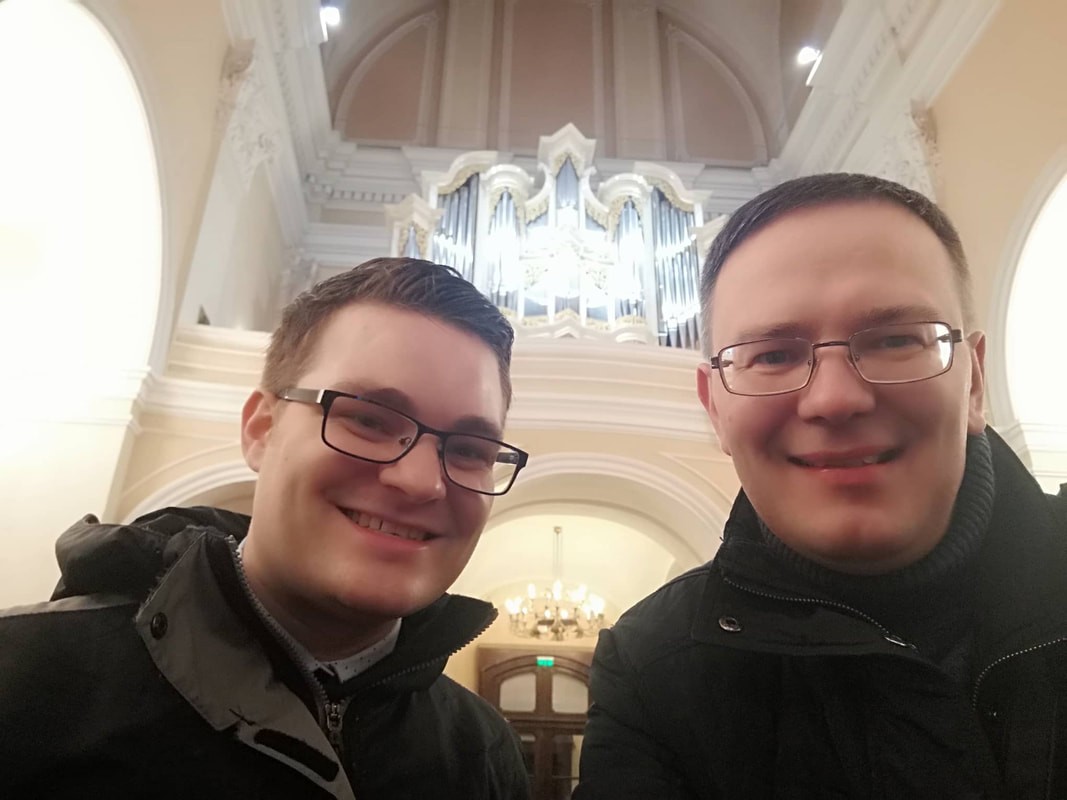
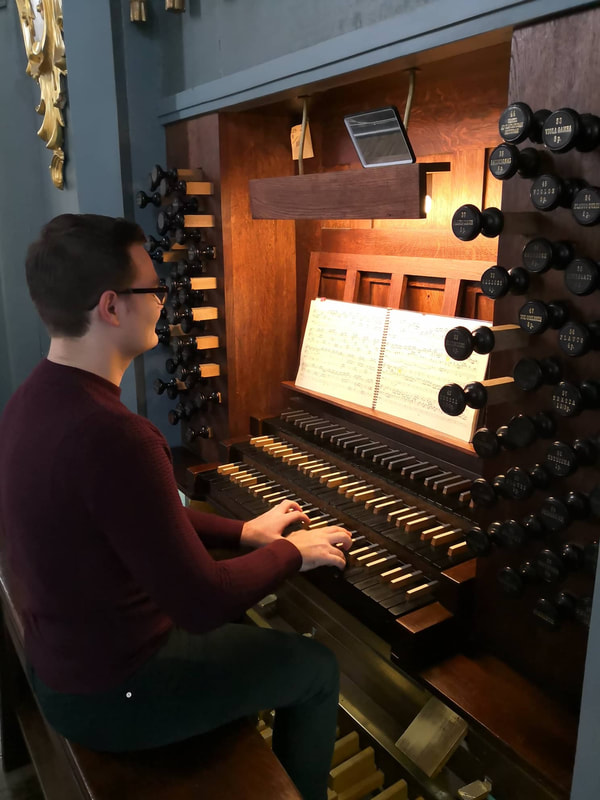
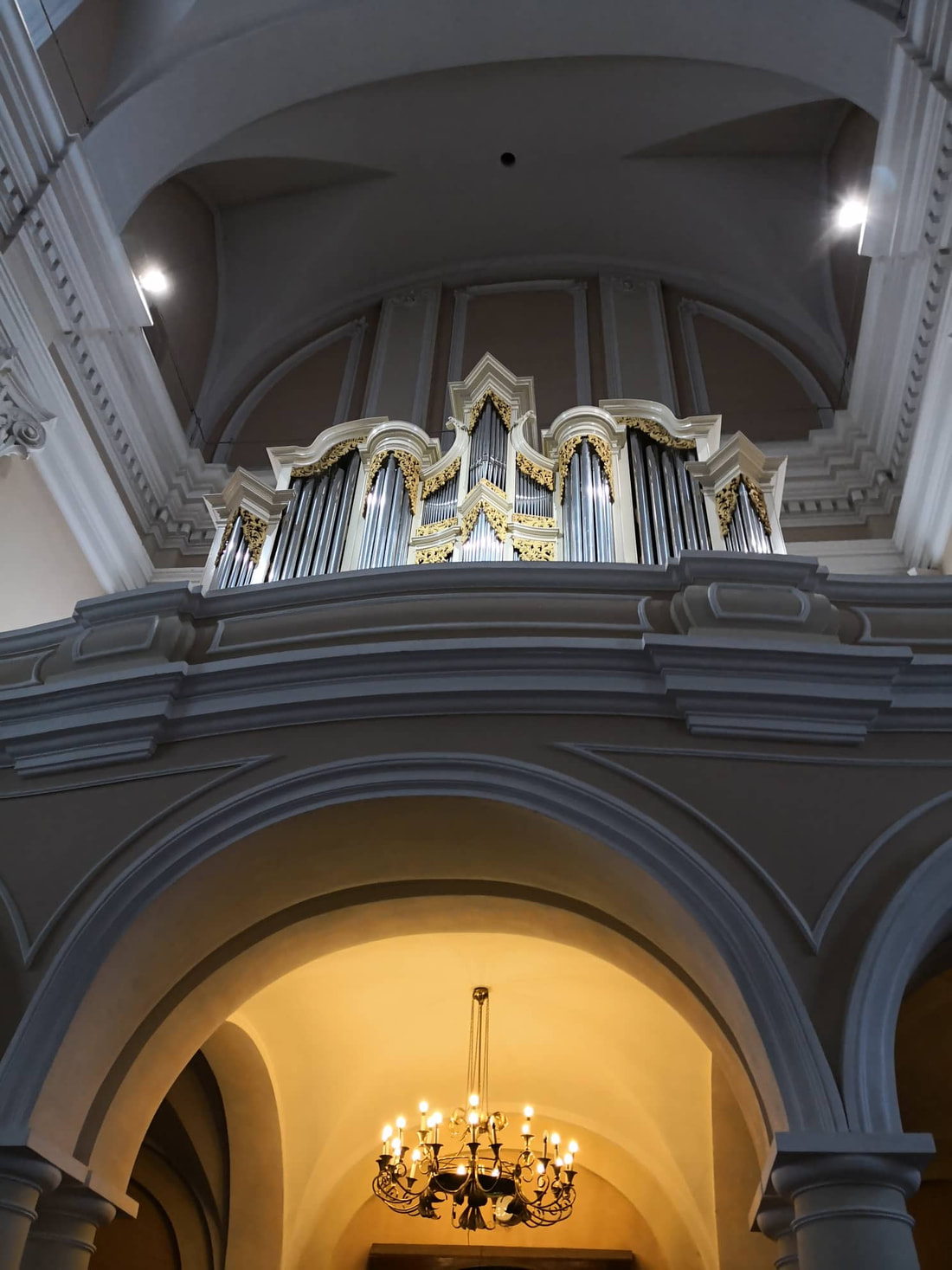
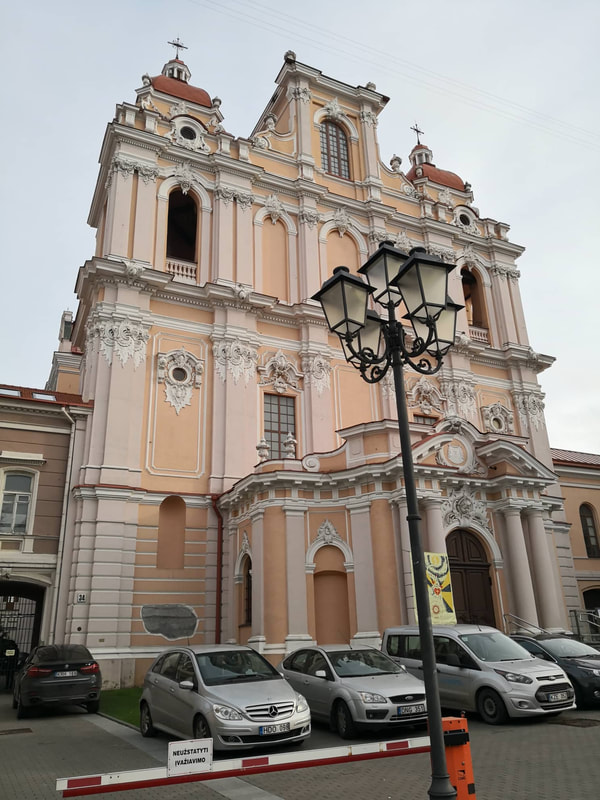
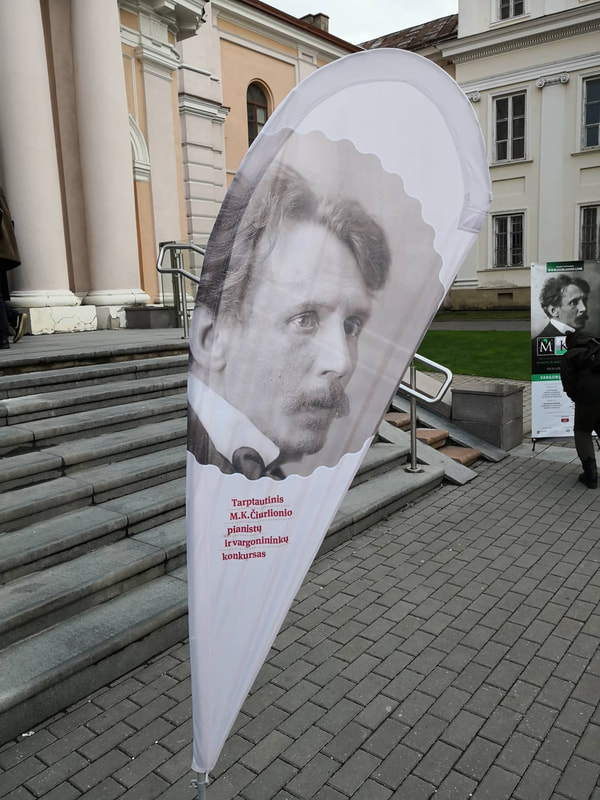
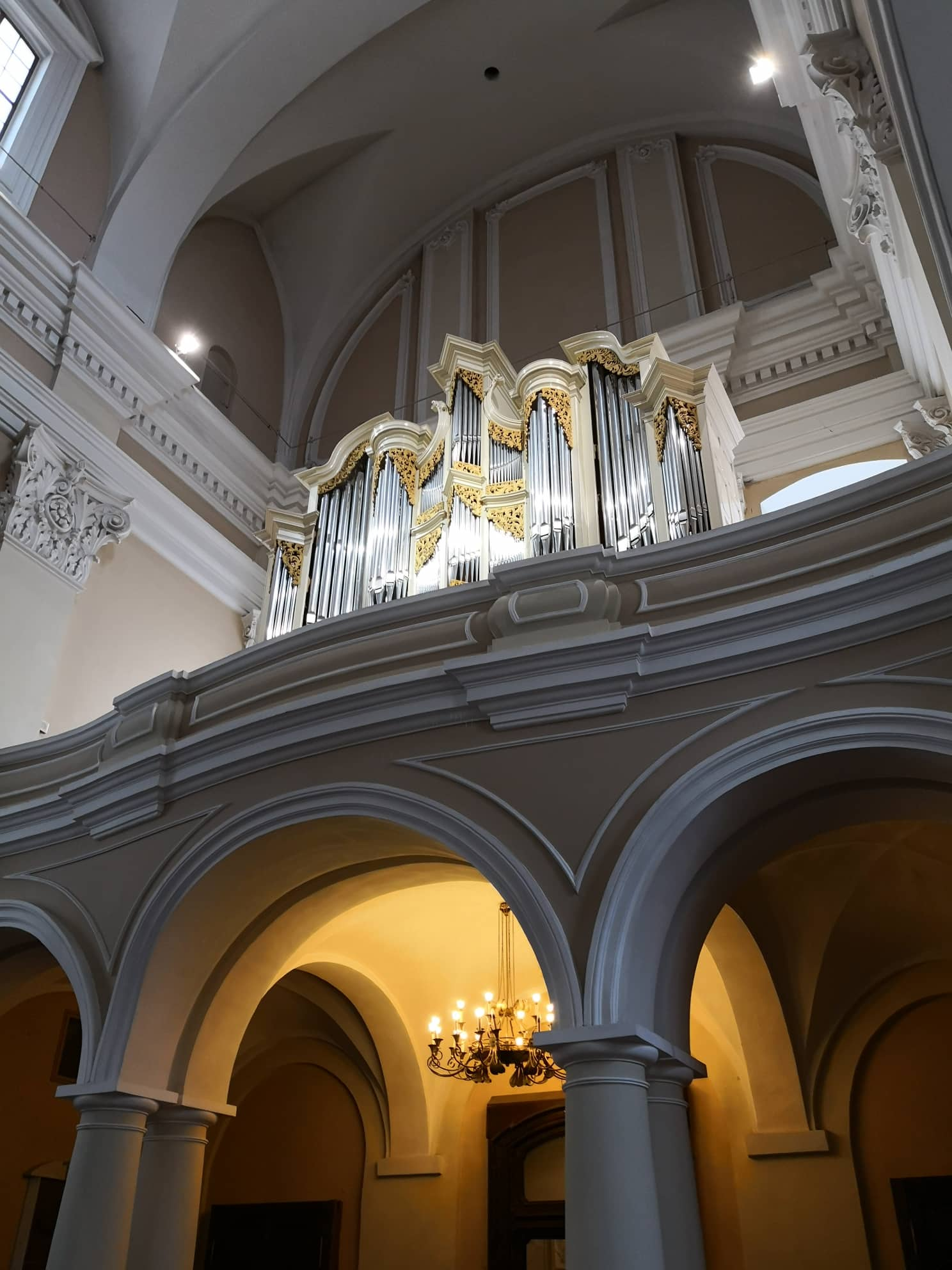
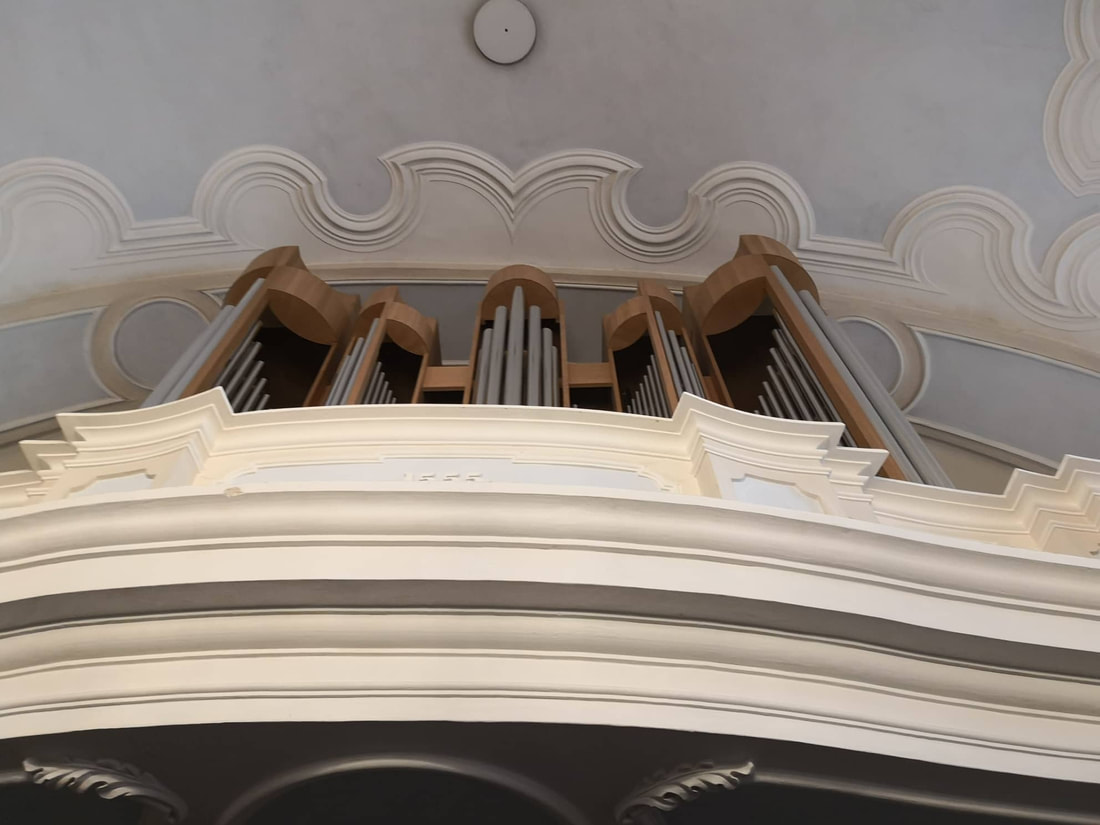
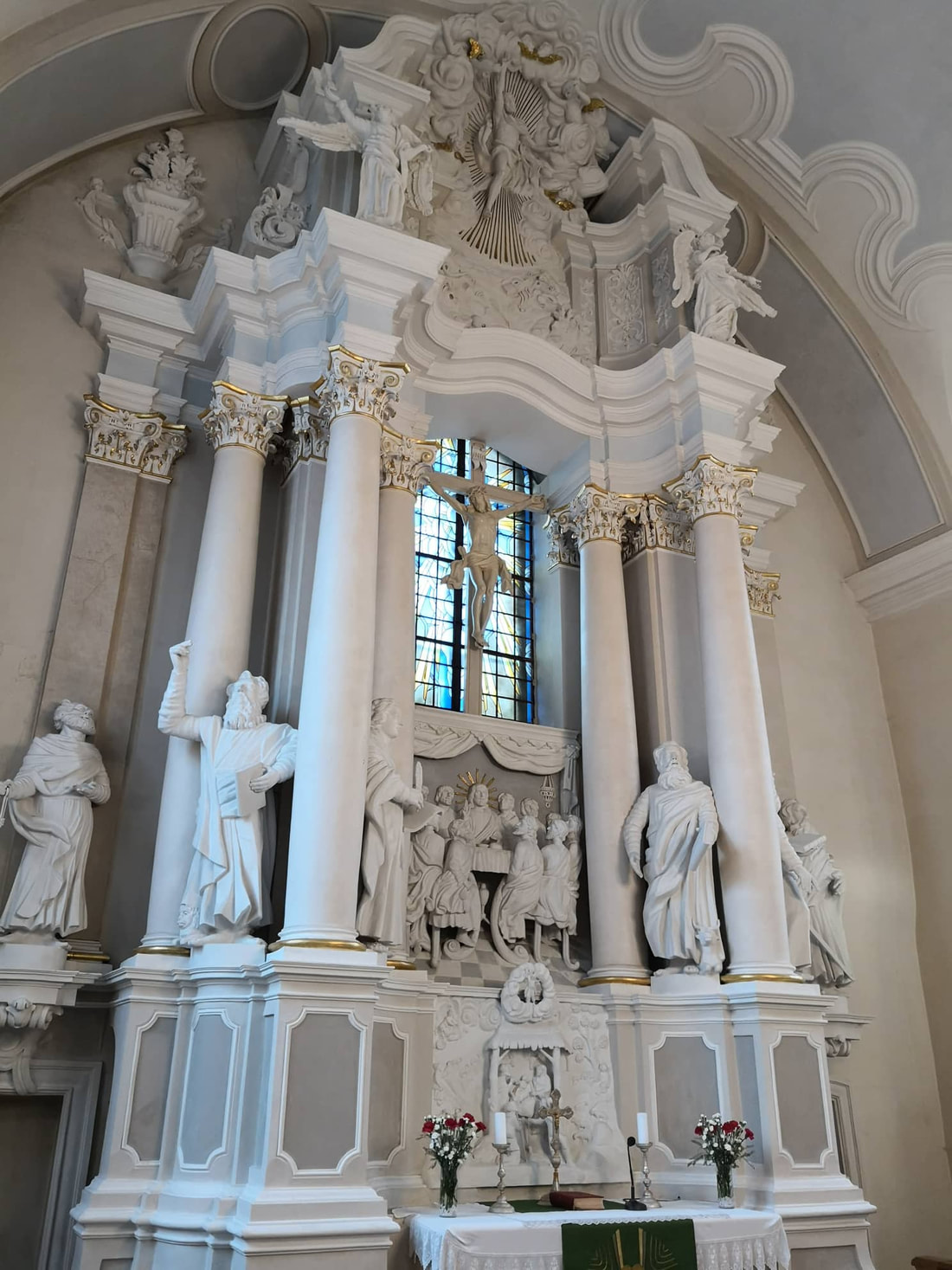
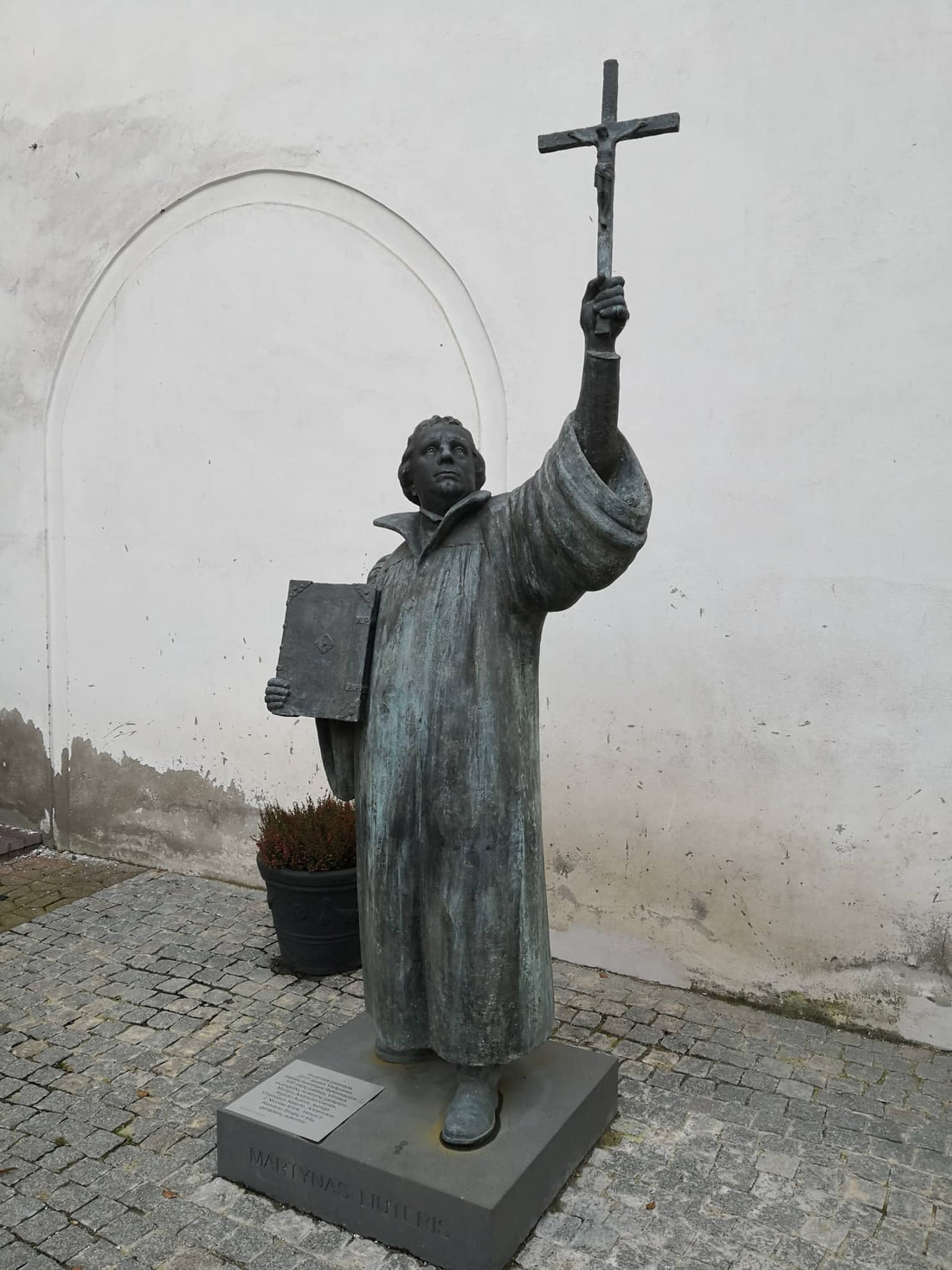
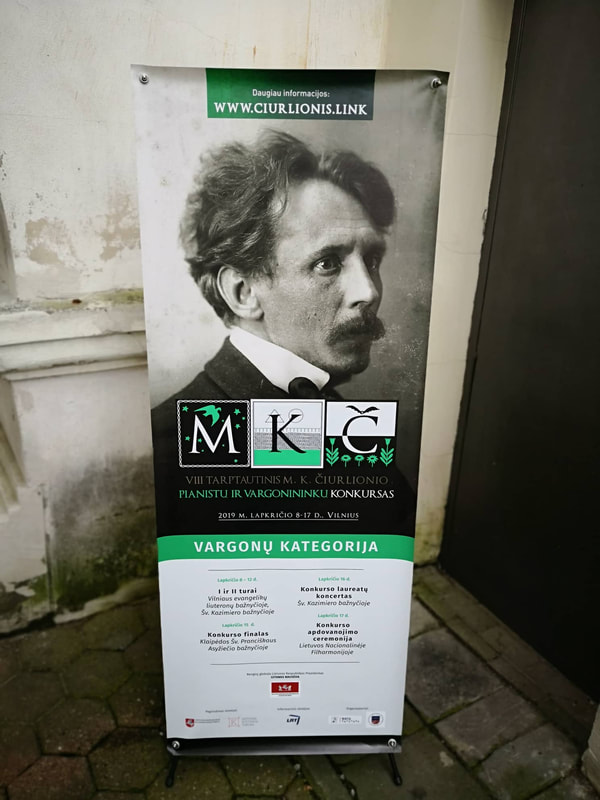




 RSS Feed
RSS Feed